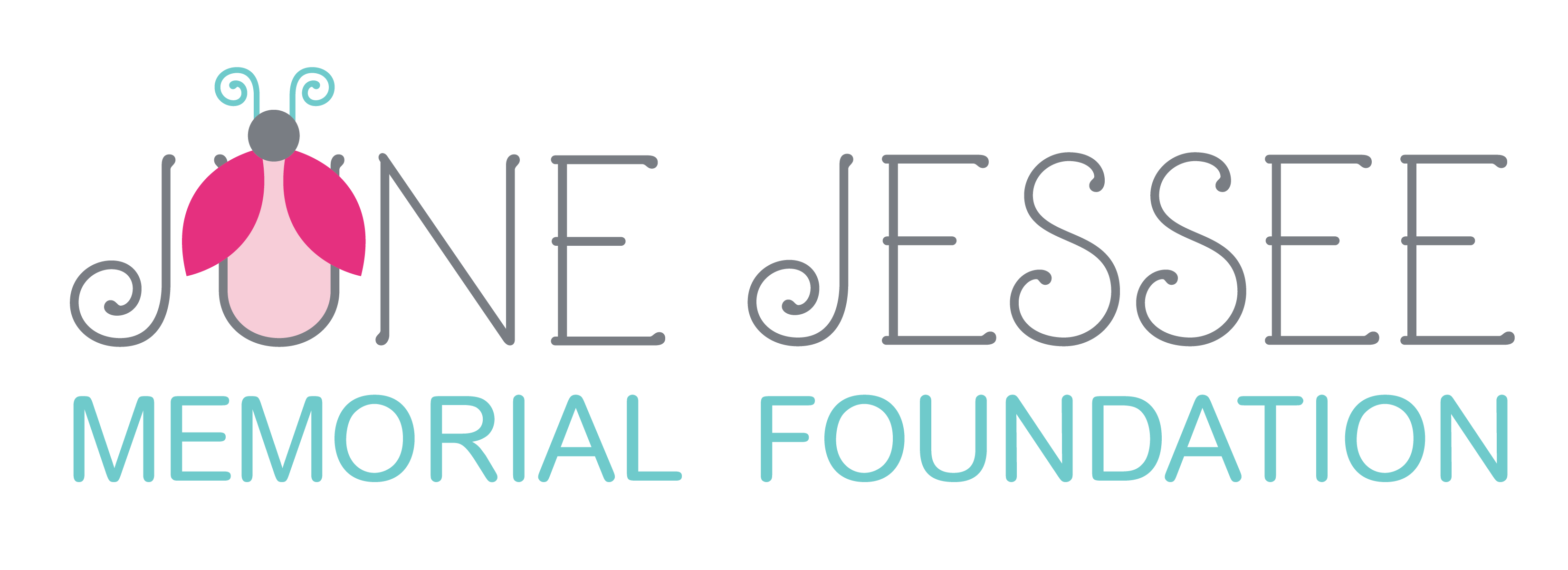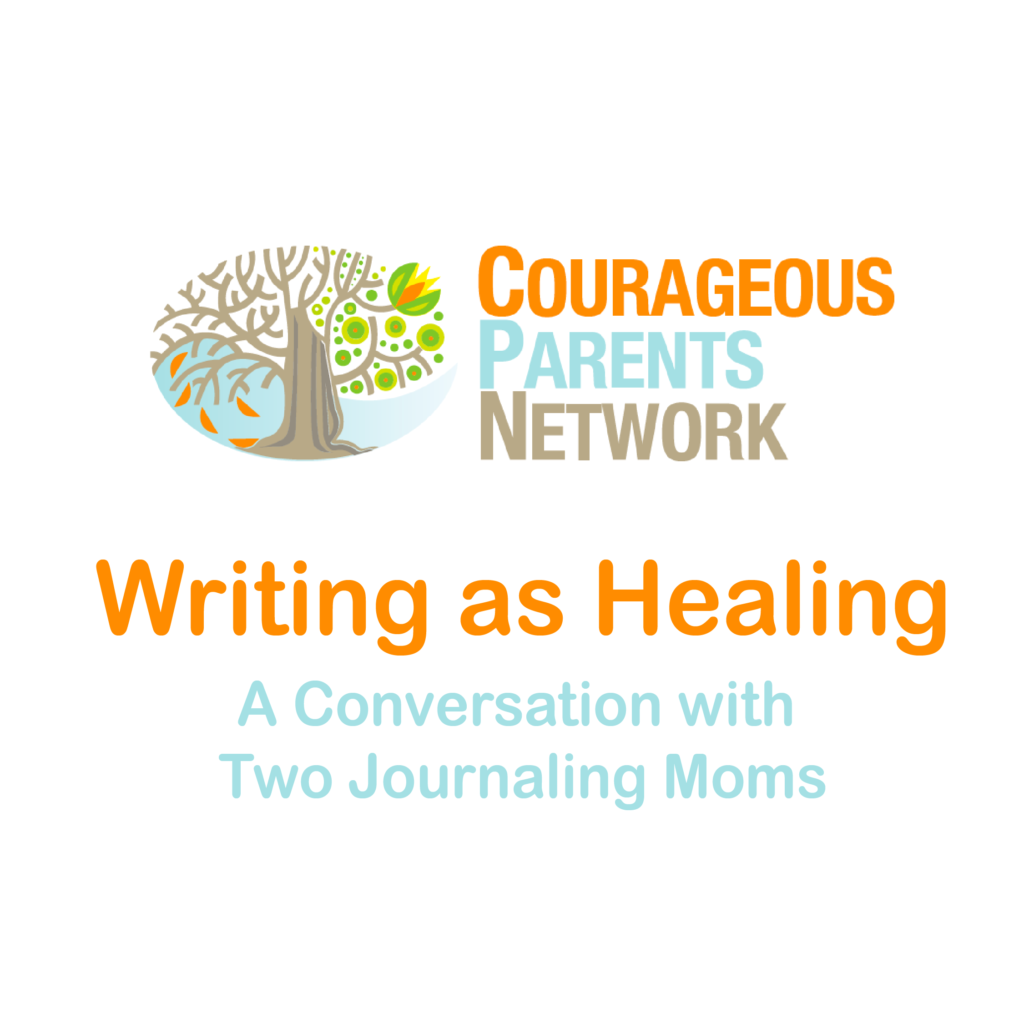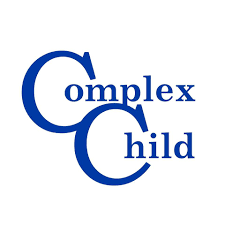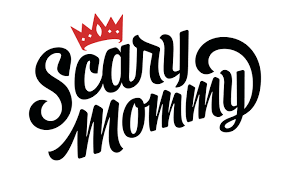Writing as Healing: A Conversation with Two Journaling Moms
In this conversation with Courageous Parents Network’s (CPN) Blyth Lord, moms Faith Wilcox and Genny Jessee talk about the power of journaling and how they have used their writings to process their experiences with their children. Recorded on April 3, 2020.
Blyth: Hello again. This is the second installment of our video series on Writing as Healing with our guest, parent, and instructor, Faith Wilcox, who is herself a mother of two daughters including Elizabeth, who died of a rare blood disorder several years ago. It has turned her writing into poetry and several published books, and is helping us, coach us, on how to do this. And mom, Genny Jessee, who is a friend that I have come to know through Courageous Parents Network. Genny was one of the early parents when I started CPN, and she contributed a blog about how palliative care helped her and her husband in the care of her daughter June.
As I got to know Genny better, she shared with me the role that journaling had played in her own experience. I found myself being so glad for Genny that she had that and a little bit jealous because, Genny, you shared how you went back and looked at your notes and you actually spoke about a lot of the things that Faith is going to talk about. Sort of the therapeutic value of being able to go back and see what you thought and did, and validate your experience as a parent. I thought selfishly like, “Oh, I’m so sad for myself that I didn’t have that,” and I was happy for you that you did. So when we were putting together this series with Faith on Writing as Healing, I immediately thought that, “Well, we have to invite Genny to join.” So welcome to you both.
Faith: When did you start writing?
Genny: When I was about 13 my parents divorced and I was having a really difficult time with it. My older sister gave me a journal and she said, “Just write it all down.” Ever since then I’ve always had a journal just on my bedside just to deal with big emotions, but also to record just kind of day-to-day parts of my life. I journal at least once a week, sometimes more depending on what’s going on. But I’m working on writing a bit more about my experience with June, and I wanted to develop a regular writing practice.
I had a New Year’s resolution of writing about 30 minutes per day, but I found that wasn’t manageable for me. So I just do what I can, but I would like to develop more of a schedule. I don’t usually have writer’s block with my journal. In my journal my words and thoughts just usually run freely. There are times I don’t feel much like writing, but I always feel better once I do. Journaling has been one of the greatest outlets for me. Just the act of writing out my feelings, and fears, and experiences, gives them less power over me. It also kind of helps me just kind of organize all the chaos in my head. Just keeping the worries and concerns inside, they can take a great hold on us.
Just sometimes writing them for me, it just feels like I’m releasing it out of me. So that’s the power it has had for me. I don’t think it’s given me understanding of suffering or the experience June had. I know that’s probably not what you’re asking, but for me it’s been more of a way to understand my experience, and her experience, and how we can have these mixed emotions. Like we can be happy and heartbroken, or like joyful and suffer. You know, there’s just so many different things we can be feeling all at once. So it’s given me an understanding of that.
Faith: Would you be willing to share a section of your writings with us?
Genny: Yes. This is one of my favorite ones. And like Blythe said … I had actually kind of forgotten about it until she mentioned this. Your mind does kind of crazy things to you sometimes. And one thing that I can do sometimes is say, “Oh, I didn’t enjoy June enough while she was here, and I just focused on this.” But the journal will remind me like, “Oh yes, I did enjoy her, and here’s proof.” The part that I’m going to read, it’s on January 10th, 2016. This was a little less than a month before June died, and I said … Let me get to the part. I said, “Lately George,” George is my other son, and he was just a baby at the time.
I said, “Lately George likes to grab my nose or my mouth or touch my face. It’s so sweet. He’s so much fun right now. I’m in total new territory with him. He’s sitting up in the bath and just such a little rascal trying to crawl. Everything from here on out is new. We’ve been permanently stuck in the newborn stage with June for almost four years. It’s just so hard to believe we are doing things we always wanted to do and experience. It makes me happy, but I’m also so scared, scared that something’s going to happen to June. When will it be taken from us? Whenever I start going down this scared path I try to just think of something else, but it’s there.
The point is, and what I need to focus on is, right now in this very moment life is so good. George is healthy and happy. June is in her crib, comfortable. Matt is next to me sleeping, and I am in a good place. I love my husband and my kids. I have everything I’ve ever wanted. I just want to take a moment to appreciate all the gifts I do have. The other thing I thought about today is how I am June’s mother, but she has taught me more than I will ever teach her. In fact, I don’t think I’ve taught her anything. I’ve loved her and cared for her, but all the teaching has been on her end. She’s taught me about smiling through the suffering, about love, acceptance, patience, perseverance humor.
I will never know why some children face such grave circumstances, but I believe we can make meaning from these situations because they will change us for the better if we let them. Every day I try to cherish June because I never know if it will be my last with her. She is my angel here on earth, and I believe when she goes home to heaven she will still be with me. As long as I’m living, she will always be my baby, and I know our love can transcend. Her love for me will find me here, and my love for her will reach her all the way in heaven.”
Faith: That’s very, very beautiful.
Blyth: Oh my God, that’s so beautiful. I have to inject myself here. That’s so beautiful Genny, and I’m so happy for you that you have that because our minds can’t remember.
Genny: No. No.
Blyth: You know, Faith, you have your journals, so you can go back and be reminded of the beautiful and the difficult. And obviously you can too Genny. I’m here as evidence of someone who cannot, and I miss what I don’t remember. And there are parts of it that I probably would’ve stopped remembering. It’s not just because of time. It’s probably also just because our memory can’t possibly hold everything regardless of the passage of time.
I wish I could go back and honor in other ways the mother that I was to my daughter, and I know that a journal would be a vehicle for that. We’ve got home videos, and those are like gold. Right? Because I can see myself with her and I’m like, “Oh,” but I don’t know what I’m thinking. And I don’t remember that much about how I was feeling. So this is a plug for what you guys are talking about. I get it and I’m, “Oh, right.”
Genny: Yes. I’m very grateful that I have these. That yes, I mean they’re my most treasured things, and it is … One thing that I find also is, sometimes I look back and I think, “Gosh, I was so insightful at the time,” or something. You know like, “Oh, wow,” because like you said, you forget.
Blyth: You’ve talked, Genny, I know about wanting to help other parents see their strengths. I mean, Faith, I mean you talk about journaling for healing purposes. And Genny, you have this other twist that you are working on with wanting to help parents of medically complex children that is a variation on not just the healing piece but the … Can you describe that?
Genny: Yeah. So I’m working on, it’s a guided journal/baby book for parents of children who have medically complex neurological disorders. It came about because, as I’m a longtime journaler, I was very excited about June’s baby book. Before she was born I didn’t know there was anything wrong. I quickly learned as I was writing in it, that the baby book I bought for her wasn’t helpful for me in our situation so I began to make my own baby book for June. So this baby book that I’m working on is a version of that.
It’s a place to record what babies are doing well and how to track how us as parents are accomplishing amazing things and growing. Because a lot of times with June I found we were in specialist appointments all the time, therapy sessions, and everything was focusing on what wasn’t working with June, and that was really important for me to record what was working. I remember one time I wrote down like, “June’s hair was long enough to put a bow in it.” Like that was like one of the accomplishments, and I was really excited about putting a bow in her hair.
So the book will offer places like that for, we call them inch stones in your child’s development, as opposed to milestones. So that’ll be there, and then it’ll also include some inspirational quotes and just places for parents to write down some of their thoughts and feelings with the whole process. So kind of just a positive journaling, but also acknowledging the real hardships. Like there’ll be prompts that ask about hardships too, but also to record the good.
Blyth: Do you go back when in reading your journal, you’re like, “Wow, that’s different than I remember it, and it’s really helpful to see actually how I was experiencing it then wasn’t how I remember it now?”
Faith: When I’ve had times, which has been very comforting to me, is I’ve also written down the good times. And I wrote down the very poignant things that Elizabeth said to me, and the times that I will never, ever want to forget. But as you say, during the exact moment your mind can’t cope with everything that’s being said to you. So I’m very, very glad that I wrote
Those are my forever keepsakes. There are times also I’ve looked back and I thought, “Oh my gosh, we really did get all this accomplished. Elizabeth was doing what she was doing, and what I was tasked to do.” So there are times I can say, “Yeah, I actually did do more than I thought, and I’m really glad I can remember that. And I did have more strength than I maybe gave myself credit for.”
Blyth: What I love about the journal is, that’s a private conversation that your present self can have with your past self, or your past self can have with your present self.
Faith: That’s very, very true. Very true.
Blyth: Genny, have you thought of doing anything with your journal writings the way Faith has, like having them evolve into more? Not that they’re …
Genny: Yeah, I have. I mean at one point I thought I’d use them as a guideline, like as an outline for a memoir or something like that. Even if it’s just a memoir that’s just in our family just about June’s life and the lessons that she taught us. But I have an inner critic.
Faith: I would say the best you can, to let go of your inner critic to know that you can do this. You really, really can. And to believe in yourself and believe in your story. And I know you believe in June’s story. I think it’d be so valuable for your sons one day to know about their older sister. I think that would be such an amazing gift that you could give to them. And if it went broader to the bigger world, that would be a gift to the bigger world as well. So I just would go and do it. Don’t hold back.
Blyth: I also think it’s … I’ve heard and I know, Genny, you’ve heard this, and I’ve talked to another mother who’s written a memoir whose daughter died. It’s a beautiful, it’s a memoir. You know, the publishing world is not entirely interested in our stories. “Well, that’s depressing. That’s sad. Nobody wants to read that.” But it’s shortsighted because what’s coming out of these stories is not the depressing stuff. It’s the beautiful stuff. It’s the love.
It’s the stuff that transcends the pain. Oh, and by the way, pain and suffering are part of the human condition. And what could be more helpful than to name it, and look at it, and then shape it in a different way? Which is so much of, Faith, what you’re coaching when you’re teaching this is like take it and shape it in a way that moves it from what’s difficult to what’s powerful.
Genny: There’s something I learned with parenting for like preschool age. You probably know this but it’s, “Name it to tame it. Feel it to heal it,” or something. And it does really work like when little kids are dealing with big emotions, but it also helps all of us just to like recognize that emotion we’re feeling and then also feeling it.
Blyth: And I think that if people reading the story of a child that’s living with an illness and could be dying from their illness, and parenting that child, may be somebody’s worst nightmare. Except when you actually read there’s so much in it that it’s like deactivating the fear. It’s like obviously all parents fear what we’ve lived. But by seeing that we’ve lived through it and we’ve processed it, we are an example of how strong people can be. And I think there’s a possibility that it could be an inspiration to others who are not in this situation that they could survive something very, very, very difficult. God willing it would not be that, the illness of a child, but just look how strong we can be.
Faith: That’s very true.
Genny: Very true.
Faith: And there is, as you said, pain and suffering in so many different venues in life. And I think as you were just saying, you can be an example for being able to walk through a very, very difficult journey and to come out to the other side, and to know that you can have a new normal. And as Genny was saying, you can have joy and sadness in your heart at the same time. It’s fine. I mean many of us live with that combination and we can still enjoy life as full as it can be for us.
Blyth: Well, on that note I want to thank both of you so much for talking with me and Courageous Parents Network and with each other, and for sharing what you’ve done and what you’re doing. I am actually inspired to start journaling. My daughter’s got me thinking I need to do it anyway. Like a gratitude journal, and I’m trying to have growth mindset so going to get on that.
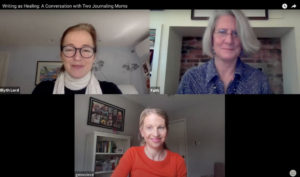
Watch the recorded interview on YouTube.
Learn more and join Courageous Parents Network.
